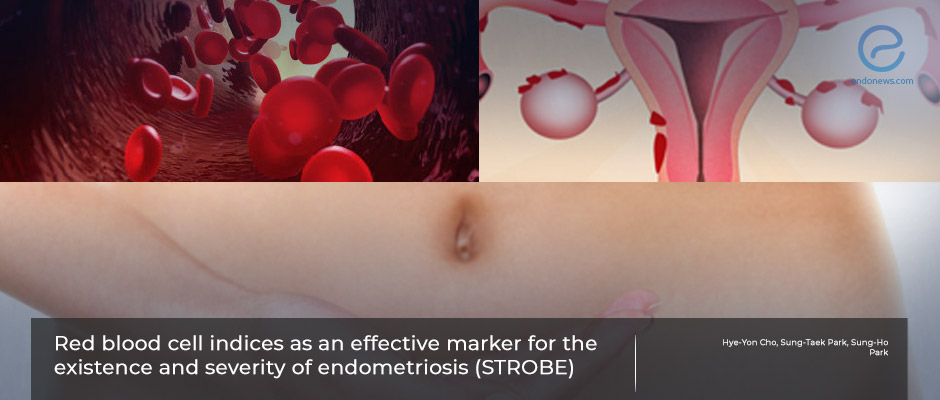Do not underestimate the power of red blood cell evaluation in endometriosis
Jan 24, 2023
Several red blood cell parameters may help in assessing endometriosis severity, study finds
Key Points
Highlight
- Red blood cell (RBC) parameters may be used to evaluate the existence and severity of endometriosis.
Importance
- As a chronic inflammatory disease, endometriosis harbors an imbalance of many markers in the serum and peritoneal fluid.
- The levels of various RBC parameters, including neutrophil-to-lymphocyte ratio (NLR), have been demonstrated to be altered in endometriosis patients.
What’s done here
- This is an observational study performed on 200 women with endometriosis (100 with Stages I to II, and 100 with Stages III to IV) and 100 women without endometriosis.
- The study aims to evaluate the associations between different RBC indices and endometriosis.
- The studied RBC indices included the mean corpuscular volume (MCV), mean corpuscular hemoglobin (MCH), MCH concentration (MCHC), red cell distribution width (RDW), hemoglobin (Hb), hematocrit blood test (Hct), and NLR.
Key results
- Significantly lower mean values of RBC, Hb, Hct, MCV, MCH, MCHC, RDW, and postoperative day1 Hb were observed in Stage III to IV patients compared to the others.
- The mean NLR at POD1 was found to be higher in Stage III to IV patients compared to the others.
- A younger age than 38 years, a lower preoperative MCV value, a lower postoperative day1 Hb value, and a higher postoperative day1 NLR value were detected as independent risk factors for Stage III to IV endometriosis were discovered.
Strength and Limitations
- The strength is the selection of controls; and the limitations are the retrospective design of the study, not being able to exclude hidden causes of anemia
Lay Summary
In an effort to develop an easy-to-use diagnostic marker, research has focused on the pro-inflammatory nature of endometriosis and the raised levels of inflammatory markers. The neutrophil-to-lymphocyte ratio (NLR) has emerged as one of these markers. Moreover, endometriosis has been shown to impact several other red blood cells (RBC) parameters.
To assess the associations between different RBC parameters namely the mean corpuscular volume (MCV), mean corpuscular hemoglobin (MCH), MCH concentration (MCHC), red cell distribution width (RDW), hemoglobin (Hb), hematocrit blood test (Hct), NLR, and endometriosis, Cho et al. from Korea performed an observational study which was published in the October 2022 issue of the journal named Medicine (Baltimore).
They included 200 women (100 with Stage I to II and 100 with Stage III to IV) with a pathologically confirmed diagnosis of ovarian endometriosis as the study group and 100 women with other benign diseases as the control group. These patients underwent a routine complete blood cell count within one month before the surgery. The mean values of RBC, Hb, Hct, MCV, MCH, MCHC, RDW, and postoperative day 1 (POD1) Hb were found to be significantly lower in patients with Stage III to IV endometriosis compared to Stage I to II patients and controls. According to the researchers, the fact that certain RBC parameters were negatively correlated with endometriosis stages indicated that they were linked to the severity of endometriosis. They proposed that an imbalance in iron metabolism is the cause of these observations. Moreover, the mean NLR at POD1 was found to be higher in Stage III to IV patients compared to the others. The authors stated this finding does not correlate with the existing studies that propose NLR elevation as a predictive marker for endometriosis severity.
As a result of the multiple logistic regression analysis several independent risk factors for Stage III to IV endometriosis were discovered. These included a younger age than 38 years, a lower preoperative MCV value, a lower postoperative day1 Hb value, and a higher postoperative day1 NLR value. It was concluded that further multicenter prospective studies are needed to shed more light on this subject.
Research Source: https://pubmed.ncbi.nlm.nih.gov/36281126/
endometriosis red blood cell Hb MCV NLR stage 1 stage 2 stage 3 stage 4

